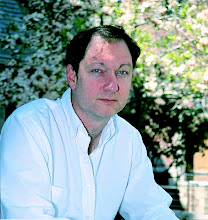What Judge Samuel Alito Can Expect
Samuel Alito Jr., 54. U.S. Court of Appeals for the Third Circuit. Known as "Scalito," or little Scalia, he is considered less blustering than the big guy, but liberals will undoubtedly balk at his abortion record. In 1991, he dissented from a decision to strike down Pennsylvania's spousal notification provision--a decision the Supreme Court later upheld in Planned Parenthood v. Casey, the decision that reaffirmed Roe v. Wade. What should be far more troubling to Senate Democrats, however, is Alito's 1996 dissent from a decision upholding the constitutionality of a federal law prohibiting the possession of machine guns. Applying the logic of the Constitution in Exile for all it's worth, Alito insisted that the private possession of machine guns was not an economic activity, and there was no empirical evidence that private gun possession increased violent crime in a way that substantially affected commerce--therefore, Congress has no right to regulate it. Alito's colleagues criticized him for requiring "Congress or the Executive to play Show and Tell with the federal courts at the peril of invalidation of a Congressional statute." His lack of deference to Congress is unsettling.
Update: Given my reference to Rosen's discussion about machine guns, I knew that these types of press releases from gun control groups would follow. Before one looks at it though, let me point out the obvious. Alito's 1996 decision occurred shortly after the Lopez decision in 1995 and all Alito seems to be asking is that legislation provide a mechanism to show that interstate trade is involved. Note that the Safe School Zone Act was re-enacted in virtually its original form once a boiler plate paragraph was inserted requiring that the courts find that the gun or its parts were in some way involved in interstate trade. This is a trivial requirement, and personally I think that this makes a mockery of the original intent of the constitution. The Lopez decision was a trivial decision, but to attack Alito as being extremist for upholding such a tiny requirement that a finding be made that interstate trade is involve seems bizarre to me.
'Machine Gun Sammy,' a Perfect Halloween Pick, Says Brady Campaign
10/31/2005 11:15:00 AM
To: National Desk, Supreme Court Reporter
Contact: Peter Hamm of Brady Campaign to Prevent Gun Violence, 202-898-0792
WASHINGTON, Oct. 31 /U.S. Newswire/ -- The following was released today by the Brady Campaign to Prevent Gun Violence on the nomination of Judge Samuel Alito to the Supreme Court:
How could it have gone in any other direction, from a White House that just gave blanket immunity to the gun industry, which refuses to bar terrorists from buying guns, that broke a campaign promise and put Uzis and AK-47s back on America's city streets, and insisted that records of gun purchases be destroyed before the sun sets on them twice?
It had to be a Supreme Court pick that favors legal machine guns.
In 1996, Judge Samuel Alito was the sole judge who dissented from his Third Circuit Court of Appeals colleagues when they upheld the authority of Congress to ban fully automatic machine guns.
"Earth to Sammy -- who needs legal machine guns?" asked Jim Brady, chair of the Brady Campaign. "The Chicago mobsters of the 1930s would be giddy. But the man I worked for, who gave us Sandra Day O'Connor and signed the 1986 machine gun ban, would be shaking his head."
"Judge Alito's ludicrous machine gun decision is bad enough. But it also indicates that a Justice Alito would attempt to prevent Congress from passing other laws to protect Americans from gun violence," said Michael D. Barnes, president of the Brady Campaign. "If Judge Alito had his way, the federal machine gun ban would have been struck down as unconstitutional, and the private possession of these weapons would have become legal."






